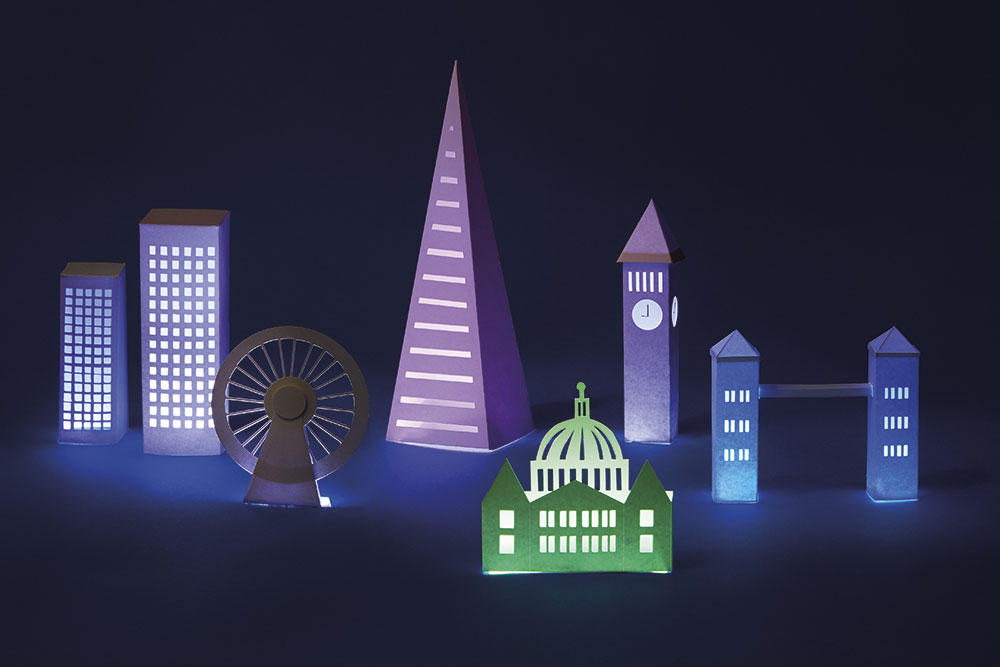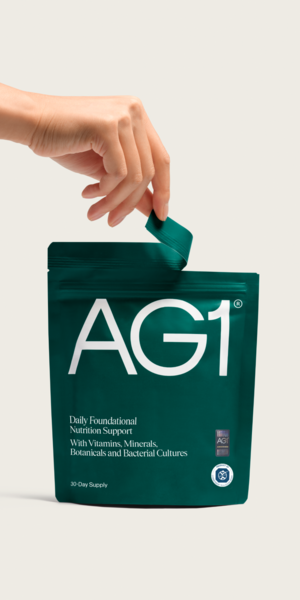Light Up London

Any year whose first four months took in the deaths of not one but two of music’s greatest ever artists was always going to struggle to recover. But as we all now know, the passings of David Bowie and Prince were but the tip of a very bleak iceberg.
Regardless of your feelings about the Brexit vote in June or Donald Trump’s election as US president in November, it would be hard to argue that their omnipresence in our day-to-day lives and the surrounding discussions have been a positive thing. The constant reporting on both have perpetuated an atmosphere of confusion, chaos, gloom, fear and the feeling of two sides waging a never-ending war of very disdainful words on each other.
Survey the contrasting headlines each morning, go on social media or even just eavesdrop on a conversation in a restaurant or bar, and it’s easy to get the impression that the world is now just two large groups of people calling each other ‘idiots’ – which is not a great situation for anyone, or for anyone’s state of mind.
In times when cynicism and bad feeling are so prevalent, and in which most of us exist in the echo chamber of opinion that is the modern digital world, it can be easy to disregard the idea of positivity as an overly simplistic, futile response. But the fact that this response is in itself cynical and defeatist should go some way to reinforcing the truth that, if 2016 has taught us anything, the idea of actively pursuing happiness has never been more important.
‘In psychological terms, bad is stronger than good,’ explains positive psychology and happiness expert Vanessa King, who is a board member of Action For Happiness: an ever-growing movement of people committed to building a happier society through positive change. She is also the author of its excellent book Ten Keys To Happier Living (£12.99, Headline), which details the practical ways in which we can do this.
‘Humans notice what’s wrong more quickly,’ she says. ‘It stays with us longer and we amplify it – and we often overlook what is going right. There’s a whole evolutionary reason for this: we’re hardwired to stop risk, we’ve evolved to do so. But we don’t need to be that way any more.’
The negativity bias in the human brain occurred over time because our ancestors needed to be more attuned to the elemental dangers they faced on a far more frequent basis, such as very big, hungry animals with very big teeth. These days – especially as Londoners – we are, of course, far less likely to encounter a lion or any such danger than they were, but our heads remain programmed to react more strongly to danger than to calmness and good things.
Vanessa calls this ‘triggering our primitive brains, not our more evolved brains – where we’re capable of rational thought and more conceptual, creative thinking.’
She continues: ‘We’re circumventing that and fuelling our primitive brains, but doing so unnecessarily.’ She notes, too, that the barrage of increasingly sensationalist headlines Londoners are subjected to all day, every day, does not help with this mindset. At all.
BATTLING THE BIAS
Think about it in broader terms: how many horrible things are there that have been said to you, going way back into your childhood, that still linger in your mind, and pop up at times of insecurity? And in contrast, how many happy memories or glowing compliments pop into your head without warning? Respectively, the answers are probably – unless you are very, very lucky, or go by the name of Donald Trump – ‘quite a lot, actually’ and ‘not many, now that you mention it’. Studies have shown that the bias is such that we need to hear five positives to counteract the effect of every negative.
Which is obviously a lot. So, what can we do to achieve this, in terms of both allowing ourselves to be more open to positivity and also overcoming the misanthropic tendencies that cause us to see the bad qualities in others?
‘We’re social creatures, so our connections to others are vital,’ says Vanessa. ‘And that means people we know and love and care about, but also people who have different perspectives to us. Maybe one thing we all can do after Brexit is think: “Are there ways I can connect with people who aren’t in my normal social circle?”
‘One of the things Brexit taught us is we’re in our kind of clusters and we don’t communicate enough with different groups. How do we break down that divide?’
Seka Nikolic (sekanikolic.com) is a renowned ‘bio-energy practitioner’ – which means she spends her days helping people to rebalance the life energy within the body. She concurs that the current climate of negativity in the news is having a serious effect.
‘Mass fear can be very damaging because it begins to limit our thinking and take us away from what I call our neutral mind,’ she says (the neutral mind being the state in which we view things with detachment and in moderation).
‘It is easy to get swept along by what everyone else is thinking and become “one mind”. Powerful examples of “one mind” mass energies are evident in nature every day, such as when huge shoals of fish swim together or birds migrate. These “one mind” survival techniques can be used to fight off predators or to hone in and make better sense of general dangers, as natural methods of protection.
‘In these situations people are less likely to trust themselves and make up their own minds. At this point, fear can take hold more easily and make people behave in ways they normally wouldn’t dream of.’
She says a collective consciousness can be key to overcoming this. ‘Just as mass negative energies can affect us and create that “one mind” phenomena, so can mass positive energies. For example, most of us felt how exciting the atmosphere was in London throughout the 2012 Olympic Games – it was overwhelming even if you weren’t that interested in athletics or sports much. So when individual minds and energies come together for a good conscious cause it can often override many struggles and dangers.’
Which, scientifically speaking, is why December, and its never-ending string of parties, is many people’s favourite time of year.
TURN THAT FROWN UPSIDE DOWN
It cannot be coincidence, either, that there have been so many new books out on this subject in the past 12 months (as well as a rather good magazine, but modesty prevents me from mentioning its name). There may be a natural pull towards darkness, but happily it feels like there are more and more people pushing back. And these are not just psychologists and gurus.
Most recently, there was TV illusionist Derren Brown’s book Happy (£20, Bantam Press) – subtitled ‘Why more or less everything is absolutely fine’ – whose cover features praise from philosopher Alain De Botton.
Written during the break-up of an eight-year relationship, it is very direct and accessible and finds Derren – among many other things – investigating Stoicism. On this subject, one chapter in particular might seem pertinent to any anxious-about-the-future Londoners.
In it, Derren says much of our unhappiness ‘comes from rumination over past events or worrying about possible future ones’. He then goes on to cite a quote from Seneca’s Letters To A Stoic which finishes with the observation that ‘wild animals run from dangers they actually see and, once they have escaped them, worry no more. We however are tormented alike by what is past and what is to come. A number of our blessings do us harm, for memory brings back the agony of fear while foresight brings it on prematurely. No one confines his unhappiness to the present.’
‘When we find ourselves worrying or feeling anxious,’ Derren concludes, ‘we might ask ourselves: “Do I have a problem right now?” If not, where possible, we could decide to worry if and when it happens, or learn something useful from it and consign it to the past.’
COUNTERACT THE DARKNESS
While researching and writing this piece, one more thought proffered by Vanessa from Action For Happiness stuck in my mind.
While we were discussing the climate of fear that it often feels is being concocted all around us, she said: ‘If you look at the present day in historical terms, we are in one of the best times in history. There are more people in the world who aren’t starving. There are more people in education. And the fewest wars in history – I know it doesn’t seem like it, but we live in one of the safest times we have ever been, yet we all feel worried all of the time.’
After the internal, cynical voice in my head had finished uttering ‘Yeah, right’ Peep Show-style in response to this and I started to accept that it was true, I felt better.
I realised I had been conditioned to reject such notions and there is a need to actively fight against that. That is what all of this is about, really: rejecting cynicism and finding ways to counteract that negativity in whatever method works for each of us. And how we do this doesn’t really matter. The important thing is to spend what is left of this year just doing it,
and then carrying that forward into next year. We may not be able to change world events, but we can change our collective reaction to them.
In the words of the dearly, also-recently departed Leonard Cohen: ‘There’s a crack in everything. That’s where the light gets in…’ It’s just a case of finding it.
5 STEPS TO SPREADING THE LIGHT
Appreciate what you’ve got…
Before we can spread positivity, we need to find it for ourselves. Start by taking a mental note – or even a physical note – of five good things that happen to you each day but which you might be taking for granted. Revisit them all at once when you get home.
…And what you have done
As the closing of the year naturally encourages reflection, think of all the positive changes
you have made (perhaps start with one for each month, and go from there). Next time you
find yourself in a conversation about such things, bring them up. Then encourage the people you are with to do the same.
Release your anger towards others
Christmas is the perfect time to make contact with people who have made you angry over the year and offer forgiveness. It will be as good for you as it will be for them.
Offer your help
There are innumerable ways you can make life a little easier for those who are less fortunate. Take a walk around your local area: it won’t take long to find notices detailing how you can help. And getting to know the strangers who live next door is something all Londoners need to do more of.
Spend some time disconnected
When you meet up with friends, all agree to switch off your devices for a while. Be fully present with each other. Your followers can wait.












